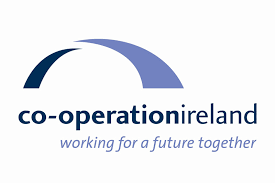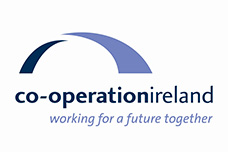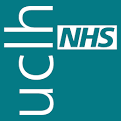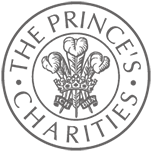Dr. Christopher Moran, Chairman of Co-operation Ireland gave an address at the DUP Business Breakfast in East Belfast earlier this month. The breakfast was well attended by members across Northern Ireland’s business community and senior DUP figures, including party leader Rt. Hon Peter Robinson MLA. You can read Dr. Moran’s speech in full below.

First Minister, Ladies and Gentlemen.
First and foremost, may I say thank you to the First Minister for this morning’s invitation and how pleased I am to see so many representatives from the business community.
As the son of an Irish man, I have always had a keen interest in this part of the world, and as Chairman of Co-operation Ireland I have made it my business to be a frequent visitor to Belfast.
Over many years I have watched Northern Ireland change for the better. And as a friendly outsider I want to commend the First Minister and the DUP for helping that change happen.
I know that for some the transformation is sometimes difficult to appreciate. There are still unresolved issues, debates and arguments – particularly over identity and symbols – which are painful, hurtful and can feel like conflict by proxy.
I would encourage you, however, not to be unduly discouraged or distracted. The task of rebuilding a Northern Ireland at ease with itself is not going to be easy. Creating a shared future is and will be difficult. At times it will be costly. At times it will involve compromise.
But the prize of a settled and shared society is the best guarantor of a peaceful, prosperous and contented society. Accentuating what unites rather than what divides is something worth striving for.
Flags, parades and now even play parks, create contention, but to focus on these matters is to miss the seismic changes which have taken place within Northern Ireland and in the relationships between the UK and Ireland.
In this decade of centenaries, particularly with 2016 fast approaching, these sensitivities are going to be highlighted over the short-term. The easy thing to do would be to retreat into respective communal camps; to create an atmosphere which facilitates the divisive politics of them and us.
That is not a call to pretend that history did not happen. Nor is it a suggestion that the centenaries of 2016 – be they the Easter Rising or the Somme – don’t present vital differences of principle to be debated and discussed.
But as the former Australian Prime Minister, Kevin Rudd once said:
“There comes a time in the history of nations when their peoples must become fully reconciled to their past.”
So let us all encourage people of all creeds and none, of all political traditions and none, to maturely accept difference, and to ensure that civility rather than harshness frames the debate. To progress, we need to live in the here and now, rather than re-live the battles of days gone by.
Her Majesty The Queen gave a lead on this when she said so eloquently that we can pay honour to the past but don’t have to live in it. And I agree wholeheartedly with that sentiment.
We have separate histories emerging from differences in tradition, culture and, indeed, experience, but I believe strongly that our destiny whether, catholic, protestant, dissenter, Irish, English, Scot or Welsh is actually shared. If I had one wish it would be that we would spend more time looking forward rather than back; that we would look to what we can do rather than what we have done.
Each day we look to inventors, scientists, entrepreneurs and even politicians to make history each day in what they do – that is the only way to build a better society.
Looking to the future is at the core of my work as Chairman of Co-operation Ireland, we are committed to helping the main traditions on this island understand and appreciate each other. Our aim is to see through walls that were built to divide.
And while the majority of our work takes place at grassroots level, we have also been working strategically with Government in London, Belfast and Dublin to normalise relationships between the UK and Ireland.
Our focus has been to shape and sculpt from where we are, to where we can go. To make Northern Ireland a better place for our children and grandchildren so that they may escape the injury and penury caused by years of violence, division and separateness.
The world of 2015 and power sharing in Stormont – even with all its imperfections – is unrecognisable to that of just twenty years ago.
Since then our intricate relationships in these islands have changed – perhaps nowhere more evident than in Her Majesty’s historic visit to Ireland in 2011 and President Higgins reciprocal state visit to the UK in 2014.
For two nations whose history, in the words of Her Majesty The Queen, has been marked by “more than their fair share of heartache, turbulence and loss”, it is unsurprising that healing is a process, rather than an event.
Significantly, Co-operation Ireland played a pivotal role in bringing both The Queen and President Mary McAleese together at Crosby Hall in 2005, but Co-operation Ireland has been integral to a delicate choreography which dates back as far as 1998 in the fields of Flanders, where both Heads of State first recognised all of the fallen Irish in the First World War.
The synergy and trust developed between President McAleese and The Queen from those events helped bring forward a decade of mutual respect and historic firsts – never before imagined.
Now The Queen and President Higgins are joint patrons of Co-operation Ireland, and in our view the two recent State visits have laid to rest the outstanding ghosts of history, marking a new era for Anglo-Irish relations. It’s now so normal, many wonder what all the fuss and estrangement was about.
But we all know these things do not happen by accident and the leaders in Westminster, the Dail and here in Belfast deserve considerable praise for laying the groundwork and for taking the necessary risks.
The stresses and strains of making peace work shouldn’t be under-estimated, but nor should the rewards, and it is my hope that the normalisation between our two nations will, over the long-term, help starve extremists of the notional bitterness and hostility in which they hope to operate.
However, settled societies are not just the product of diplomacy, they also rely upon wealth, employment and giving people an economic stake in their community. And that is where business comes in.
Having traveled the world on business, my view is that Northern Ireland has incredible potential. It offers a quality of life not available in many modern societies, yet is also highly appealing to potential investors, thanks to the caliber of its skills and cost base. That combination is something of a holy grail in the world of economic development.
Look at what has already been achieved by world-class businesses such as Wrightbus, First Derivatives, Kainos, Almac, Norbrook and Randox – Northern Ireland firms which are already leading the way in their field.
And having said well done to the First Minister for helping provide a political framework for stability, I must also say congratulations for getting to the stage where a Corporation Tax Bill is currently making its way through Parliament with the support of the Coalition and Labour party.
Indeed, I congratulate all the Northern Ireland political leaders for their foresight and courage in working together to achieve this great opportunity.
Be in no doubt that this is a major political achievement – something which many of us thought virtually impossible given the mind-set of the mandarins in Europe and the Treasury. A deal from the Treasury is rarer than hen’s teeth!
And contrary to what most people think the impact on the block grant will be tapered. As Peter told the Assembly a couple of weeks ago, cutting corporation tax is now much more “doable” as the likely reduction from the block grant in the first year will be between £100m and £150m. That is another significant achievement which will help protect frontline services.
If corporation tax can be reduced to the equal of, if not less than that of the Republic, it will, to quote Andrew Webb, the economist with Belfast-based FDI consultants, OCO, “remove the last great differentiator between Northern Ireland and its main competitor south of the border”.
It offers up the possibility to create 40,000 quality jobs, to re-balance not just the public sector, but to re-balance the private sector too.
Reduced corporation tax will help those knowledge sectors where Northern Ireland already punches above its weight with investors, but it will also give you the chance to promote other sectors such as pharma and high-end manufacturing – jobs and projects which will reach out beyond Belfast city centre.
Last summer I had the privilege to speak at one of the University of Ulster’s graduation ceremonies. I told the graduates that their generation could look forward to a scale of opportunity denied to their predecessors over the past forty years.
Born, as most of them were in 1994, they are truly the post-Troubles generation. Those young people are the future. They are not carrying the baggage of previous generations, they are carrying their education and their wits ready for the new opportunities ahead. They are the young people who, as the poet Seamus Heaney once wrote, have found out that “learning’s easy carried!”
These are the young people that both business leaders and politicians must engage with, and who must be convinced that their futures lie here.
Business people are often the first to see opportunity, and it’s my hope that businesses, such as those here today, will take full advantage of the pool of talent emerging from your two great universities and colleges of further education.
At present, however, one in three of your students going into higher education who leave Northern Ireland never return. That is a terrible loss – these students are the foundation blocks for a new generation of entrepreneurs and a new society. Reducing Corporation Tax will help turn the tide.
To paraphrase President Obama: “Change has come” and change is coming.
These are good times to be in business and to be contemplating investment plans. Should you rise to the challenge, this is your opportunity to help frame Northern Ireland’s destiny. I merely pose the question are you ready for the challenge?
Be it business or politics, these are interesting days for Northern Ireland and the rest of the UK. The successful conclusion of the Scottish referendum debate helped open the way for the Corporation Tax Bill, but it has also magnified the anomalies which devolution has created in the UK’s constitutional settlement.
The current relationship between Westminster and the devolved nations is in a state of flux, but agreeing a new framework will not be straightforward. It is a problem, however, that Northern Ireland is uniquely well placed to help solve.
The disarray over the General Election leaders’ debates may have left many of you feeling that Northern Ireland is viewed as an irrelevance, but can I assure you that Messrs Cameron, Clegg and even Mr Farage wanted your leaders included.
May I, for my part, congratulate Peter and the other political leaders for challenging the media on Northern Ireland’s exclusion from the Leaders’ debate – it was not only courageous, but the right thing to do.
However, if you wanted an issue to restate Northern Ireland’s relevance, your perspective on the West Lothian Question and your devolution experience is as good a place as any to start.
Northern Ireland has grappled with problems and difficulties that most of the UK couldn’t begin to comprehend. Despite the obvious political differences Peter and Martin have managed to create a new political dispensation and make it stick; that is a phenomenal achievement.
Now would be a good time to bring those experiences to a national debate and remind some of my London colleagues that there is life beyond the M25. The First Minister – and Nigel at Westminster – have a very real contribution to make to shaping our country.
Northern Ireland and its ex-pats have made an immense contribution to the UK. There is a great political and economic story to tell – and one which I know that groups such as Northern Ireland Connections and the Enterprise Minister, Arlene Foster, do incredibly effectively as roving ambassadors.
You should be proud of what you have achieved and the opportunities you have created for this and future generations. It is, however, only a start.
To quote Bill Gates, we must all become “impatient optimists” and continue to steam ahead to build a shared, secure and prosperous Northern Ireland.
Thank you.





